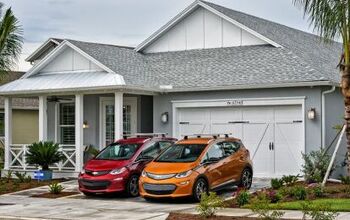Are Electric Cars Really Helping the Environment?
A recent study by the Keck School of Medicine of USC provides new insights into the potential benefits of electric vehicle (EV) adoption. The research, published in the Science of the Total Environment journal, presents the first real-world data linking EVs to reductions in air pollution and respiratory issues. This study marks a significant step in understanding the impact of electric cars on public health and the environment.
Understanding the Impact: Research Methodology
The researchers used multiple data sources to conduct their analysis. They gathered information on the total number of zero-emission vehicles (ZEVs), which include battery electric, plug-in hybrid, and hydrogen fuel cell cars, from the California Department of Motor Vehicles. The team also analyzed air pollution levels, focusing on nitrogen dioxide (NO2), and the rates of asthma-related emergency room visits across various California zip codes from 2013 to 2019.
Findings: Reduced Pollution and Health Risks
The results revealed a clear pattern: As the adoption of ZEVs increased within a zip code, there was a notable decline in local air pollution and asthma-related emergency room visits. Specifically, for every additional 20 ZEVs per 1,000 people, there was a 3.2 percent reduction in the rate of asthma-related emergency visits. Furthermore, the study showed a modest decrease in NO2 levels, a pollutant closely linked to traffic emissions.
Socioeconomic Disparities in ZEV Adoption
However, the study uncovered an adoption gap in ZEVs, with slower uptake in lower-resource areas. This gap highlights a need for policies that promote equitable access to clean transportation, particularly in communities disproportionately affected by pollution and related health issues.
Future Research and Broader Implications
While the study's findings are promising, the researchers acknowledge that more investigation is needed. Future research should explore additional pollutants, other vehicle classes, and broader environmental impacts of ZEVs, including the emissions from their production and disposal.
Conclusion
The study by the Keck School of Medicine of USC offers another case for the adoption of electric vehicles, not just for environmental reasons but also for public health benefits. It underscores the importance of considering local actions in the global fight against climate change and highlights the potential for significant health improvements through technological advancements in transportation.
This article was co-written using AI and was then heavily edited and optimized by our editorial team.
More by TTAC Staff
Latest Car Reviews
Read moreLatest Product Reviews
Read moreRecent Comments
- Jalop1991 going back to truth in advertising, they should just call it the Honda Recall.
- Plaincraig A way to tell drivers to move over for emergency vehicles. Extra points if it tells were it is coming from and which way you should move to get out of the way.
- EBFlex Ridiculous. “Insatiable demand for these golf carts yet the government needs to waste tax money to support them. What a boondoggle
- EBFlex Very effective headlights. Some tech is fine. Seatbelts, laminated glass, etc. But all this crap like traction control, back up cameras, etc are ridiculous. Tech that masks someone’s poor driving skills is tech that should NOT be mandated.
- Daniel There are several issues with autonomous cars. First, with the race the get there first, the coding isn't very complete. When the NTSB showed the coding and how that one car hit the lady crossing the road in the storm, the level of computation was very simple and too low. Basically, I do not trust the companies to develop a good set of programs. Secondly, the human mind is so very much more powerful and observant than what the computers are actually looking at, Lastly, the lawsuits will put the companies out of business. Once an autonomous car hits and kills someone, it will be the company's fault--they programmed it.


































Comments
Join the conversation